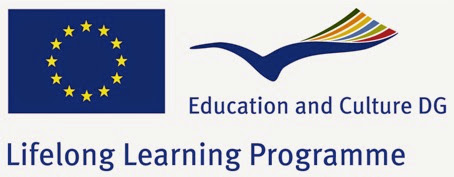
source
http://www.theguardian.com/environment/2011/feb/09/pal-oil-giant-most-valuable-indonesian-rainforest
The West Kalimantan province of Borneo, Indonesia. Greenpeace has said it will monitor Golden Agri-Resources to ensure it keeps to its promise. Photograph: Romeo Gacad/AFP/Getty Images
The world's second biggest palm oil company has agreed to halt deforestation in valuable areas of Indonesian forest, bowing to pressure from western food processors and conservationists.
Golden Agri-Resources Limited has committed itself to protecting forests and peatlands with a high level of biodiversity, or which provide major carbon sinks, as part of an agreement with conservation group the Forest Trust.
However, the agreement announced on Wednesday will still leave GAR free to exploit other areas of forest, and land that is judged to be of lower conservation value.
Greenpeace, which has strongly criticised GAR in the past for its alleged destructive activities, is expected to keep a close watch on the company to ensure it lives up to its promises. Bustar Maitar, head of Greenpeace's campaign to protect Indonesian forests, said: "This could be good news for the forests, endangered species like the orangutan and for the Indonesian economy.
"On paper, the new commitments from Golden Agri are a major step towards ending their involvement in deforestation. And if they do make these changes, large areas of forests will be saved. But now they've actually got to implement these plans, and we're watching closely to make sure this happens."
Scott Poynton, executive director of the Forest Trust, a Geneva-based not-for-profit organisation that helps companies improve their environmental sustainability, added: "Today's agreement represents a revolutionary moment in the drive to conserve forests.
"It's about going to the root causes of deforestation – we have shown that the destruction of forests is anchored deeply in the supply chains of the products we consume in industrialised nations, and we are showing we can do something about that."
He said pressure from Nestlé, which last year drew up a set of sustainability guidelines and signalled that it would not accept palm oil from sources connected to deforestation, had been instrumental in bringing GAR to the table.
Franky Wijaya, chief executive of GAR, said: "As a leading player in the palm oil industry, we are committed to playing our role in conserving Indonesia's forests and look forward to working with all stakeholders including the government of Indonesia, other key players in the palm oil industry, NGOs and local communities to find the common ground for sustainable palm oil production.
"Our partnership with the Forest Trust allows us to grow palm oil in ways that conserve forests and that also respond to Indonesia's development needs, creating much needed employment while building shareholder value."
GAR, which has annual revenues of $2.3bn, is the biggest palm oil company in Indonesia – the world's biggest palm oil producing country. The oil is used in an ever-increasing variety of consumer products, from cosmetics to biscuits, generating a market worth $20bn a year. These rewards have driven the clearance of large areas of tropical forest to make way for the plantations.
Under the agreement, GAR will not use areas of forest and peatland that are classified as "high conservation value" or as "high carbon stock", meaning they store large amounts of carbon and should be preserved. However, the definitions of these terms have not yet been precisely set. Poynton said an initial aerial assessment of forest cover had set out "go" and "no-go" areas, with GAR free to exploit the former. The "no-go" areas will be reassessed to find whether they should be regarded as valuable.
Experts in Indonesia will be asked to judge whether GAR forests have "high conservation value" under guidance from the Roundtable on Sustainable Palm Oil, a coalition of the palm oil industry and conservation groups.
The agreement also fell short of setting out how much land GAR may use for new palm planting.
Poynton said that if the agreement was successful, it could help turn Indonesia into a role model for sustainable development. Indonesia has played a strong role in international climate change negotiations, since hosting the Bali conference in 2007.

No hay comentarios:
Publicar un comentario